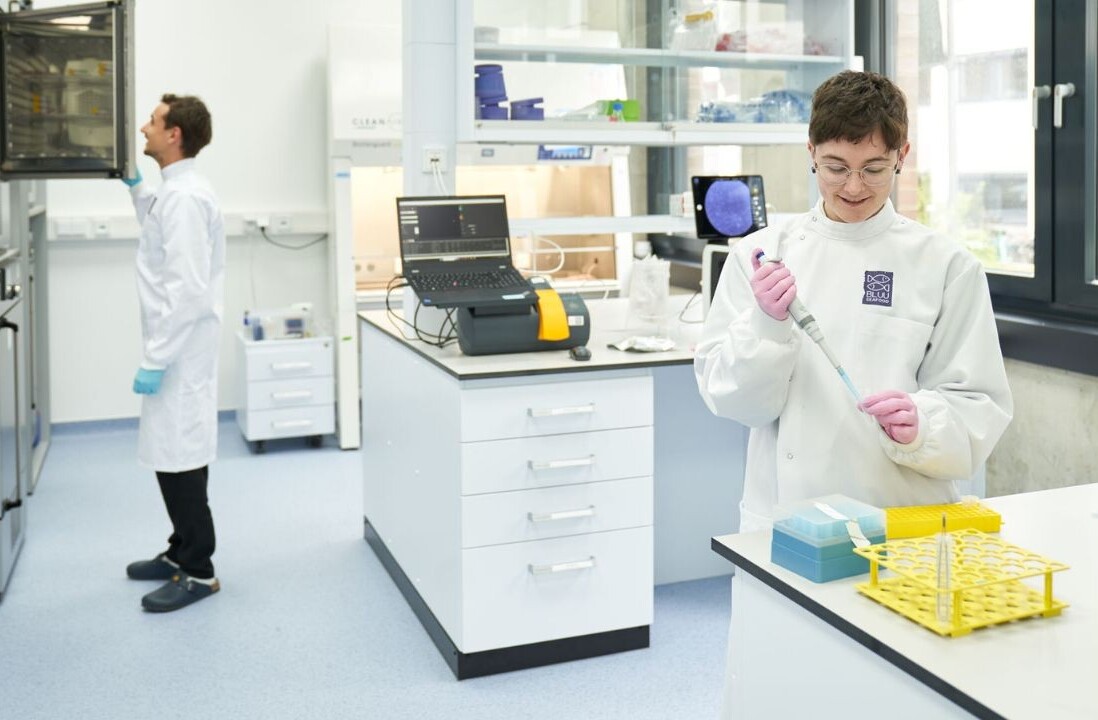
The Boston-based nonprofit, MassChallenge bills itself as “the world’s largest startup competition”. The current accelerator started on June 27th and runs through the end of September. Final judging takes place in October and 10-20 winners will split $1 million in awards.
MassChallenge is a very special kind of accelerator program, as it is both an independent non-profit and does not take equity. The competition is open to anyone in the world, with any new startup, in any industry. Stay tuned for our full story on the making of MassChallenge and our interview with its founder and CEO John Harthorne this weekend.
“Based in the heart of Boston’s Innovation District, MassChallenge is helping ensure that Boston continues to deliver revolutionary results for the benefit of the local ecosystem, the country and the rest of the world.”
– Thomas M. Menino, Mayor of Boston
Chosen out of 733 applications from 24 countries, MassChallenge’s second class of startups is composed of 125 teams that share 27,000 square feet of a beautiful office space on the Boston waterfront. We’ve tracked down 10 of the most interesting startups that will present at next Tuesday’s Startup Showcase in Boston. Meet them here:
1. Artaic
Artaic creates custom tile mosaics using robotic manufacturing and computer aided design systems. Artaic aims to revolutionize the design and fabrication of the ancient mosaic art form through ‘mass customization’. While traditional mosaic building is an exacting, time-consuming process, Artaic’s patent-pending robotic precision manufacturing and computer aided design systems drive the production of large-scale and high volume mosaics with speed, ease, flexibility and value. The team has commissioned projects from the largest Legal Seafood restaurant in Boston as well as a 330 square foot custom mosaic for the MIT Koch Institute for Integrative Cancer Research. Much as custom print technology revolutionized the carpet industry 30 years ago, Artaic now plans to revolutionize the $76 billion global tile industry.
Check out this custom backlit mosaic below and watch this video to see it in action. And cheers to Artaic for their good taste in music. The Pimps of Joytime rule.

2. AfterSteps
 We first interviewed AfterSteps, an online end-of-life planning platform when they demoed at DreamIt Ventures’ Demo Day in August, 2011. The company was founded by Jess Bloomgarden and Emma Taylor, two women entering their second year at Harvard Business School. Complete with estate planning, financial planning, funeral planning and legacy planning, it’s a system that Forbes blogger Peter Cohan calls: “The Turbo Tax for death. AfterSteps offers an easy, cloud-based experience for everything from storing your will, handling organ donation, pet custody and of course… AfterSteps also helps users plan for their digital afterlife, including your Gmail account, your Twitter handle, your Facebook account, etc. Bloomgarden and Taylor plan to work on AfterSteps with a full-time CTO and the help of Harvard’s Innovation Lab.
We first interviewed AfterSteps, an online end-of-life planning platform when they demoed at DreamIt Ventures’ Demo Day in August, 2011. The company was founded by Jess Bloomgarden and Emma Taylor, two women entering their second year at Harvard Business School. Complete with estate planning, financial planning, funeral planning and legacy planning, it’s a system that Forbes blogger Peter Cohan calls: “The Turbo Tax for death. AfterSteps offers an easy, cloud-based experience for everything from storing your will, handling organ donation, pet custody and of course… AfterSteps also helps users plan for their digital afterlife, including your Gmail account, your Twitter handle, your Facebook account, etc. Bloomgarden and Taylor plan to work on AfterSteps with a full-time CTO and the help of Harvard’s Innovation Lab.
3. HerCampusMedia
 Her Campus is the largest online magazine for college women with branches at 175+ colleges across the country. Her Campus supplements national content with local content covering style, health, love, life, and career, produced entirely by top student journalists. For anyone wanting to start their own online magazine, Her Campus is the perfect platform to check out. Her Campus also serves as a marketing platform connecting companies with college students across the country via integrated online and offline programs. Her Campus was founded by 3 female Harvard grads–Windsor Hanger, Stephanie Kaplan, Annie Wang each named to Inc. Magazine’s 30 Under 30 Coolest Young Entrepreneurs. They have about 17 employees total.
Her Campus is the largest online magazine for college women with branches at 175+ colleges across the country. Her Campus supplements national content with local content covering style, health, love, life, and career, produced entirely by top student journalists. For anyone wanting to start their own online magazine, Her Campus is the perfect platform to check out. Her Campus also serves as a marketing platform connecting companies with college students across the country via integrated online and offline programs. Her Campus was founded by 3 female Harvard grads–Windsor Hanger, Stephanie Kaplan, Annie Wang each named to Inc. Magazine’s 30 Under 30 Coolest Young Entrepreneurs. They have about 17 employees total.
@HerCampus: Are you wondering if it’s still appropriate for you to friend Friday’s hookup? Real life college guy Joel has the answer ow.ly/6zrHT
4. Altaeros Energies
 Led by MIT and Harvard alumni, Altaeros Energies is exploring new potentials in wind energy technology by adapting existing aerospace technology to develop a low-cost, rapid deployment wind turbine. The wind turbines operate at higher altitudes where wind speed is faster than on the ground, thus capturing more energy in the air.
Led by MIT and Harvard alumni, Altaeros Energies is exploring new potentials in wind energy technology by adapting existing aerospace technology to develop a low-cost, rapid deployment wind turbine. The wind turbines operate at higher altitudes where wind speed is faster than on the ground, thus capturing more energy in the air.
Essentially, it’s a combination of a blimp and a wind turbine. A helium-filed shroud inflates and rises up in the air and delivers energy through the tether. A stronger wind resource and lower installation costs will allow Altaeros to lower the cost of energy by up to 65% compared to existing diesel generators or other renewable technologies.
5. Casa Couture
Did you know that a woman’s shoe size can grow a full size larger during pregnancy? While I plan on walking around barefoot for 9 months, not all women are such hippies. Casa Couture, a New York City based retail team will launch its first “expandable” maternity shoe into the market with patented in-sole technology that expands and lengthens the shoe up to two full sizes without ever having to take them off. The company is initially targeting maternity, but will also target children’s retail in the future saving parents from having to replace their kid’s shoes every 2 to 3 months. Founder Claudia Espinola says the team’s passion and inspiration has always come from promoting the health, comfort and confidence of all women. For the past three years, Casa Couture has worked its shoe technology, and will unveil both a maternity shoe and a children’s shoe later this fall.

6. Acellera Therapeutics
 Acellera Therapeutics has developed a platform technology for localized immune-suppression to treat immune-mediated disease, which leads to fewer off-target adverse effects. The founders are UMASS PhD students studying how sensory inputs can be used to treat disease and illness. Its flagship project is a liver-specific cellular therapy to prevent the rejection of liver transplants without the severe adverse reactions associated with current immune suppressive drugs. The company has also received an inpouring of letters from parents with autistic children. The founders believe that applying constant pressure may significantly alleviate anxiety, allowing autistic children to live a more engaged life. Its pipeline also contains applications for type I diabetes and Crohn’s disease. Overall, Acellera Therapeutics’ solution improves patient health and decreases follow-up costs.
Acellera Therapeutics has developed a platform technology for localized immune-suppression to treat immune-mediated disease, which leads to fewer off-target adverse effects. The founders are UMASS PhD students studying how sensory inputs can be used to treat disease and illness. Its flagship project is a liver-specific cellular therapy to prevent the rejection of liver transplants without the severe adverse reactions associated with current immune suppressive drugs. The company has also received an inpouring of letters from parents with autistic children. The founders believe that applying constant pressure may significantly alleviate anxiety, allowing autistic children to live a more engaged life. Its pipeline also contains applications for type I diabetes and Crohn’s disease. Overall, Acellera Therapeutics’ solution improves patient health and decreases follow-up costs.
7. Ginger.io
 Ginger.io is a small team of PhDs out of the MIT Media Lab building a platform for modeling human behavior using passively tracked mobile phone sensor data. The platform generates insight from analyzing the actions of a user carrying their phone everyday – who and how often a person calls or SMS someone, geo, accelerometer data – to make predictions about a users’ future actions. The company bills itself as “big data, big health,” and plans to use this mobile data to make inferences about the users health and wellness. It plans to also help bio-pharma firms understand what happens to individual behavior during symptoms/treatment, and help chronic patients manage their conditions. For bio-pharma partners, this approach sheds light on key business decisions like adherence, market segments, and patient satisfaction.
Ginger.io is a small team of PhDs out of the MIT Media Lab building a platform for modeling human behavior using passively tracked mobile phone sensor data. The platform generates insight from analyzing the actions of a user carrying their phone everyday – who and how often a person calls or SMS someone, geo, accelerometer data – to make predictions about a users’ future actions. The company bills itself as “big data, big health,” and plans to use this mobile data to make inferences about the users health and wellness. It plans to also help bio-pharma firms understand what happens to individual behavior during symptoms/treatment, and help chronic patients manage their conditions. For bio-pharma partners, this approach sheds light on key business decisions like adherence, market segments, and patient satisfaction.
Today, Ginger.io is starting with enterprise customers – helping them better manage and generate insight from the consumer data – but there is a great possibility for direct consumer benefit long-term.
8. Libboo
We first interviewed Christopher Kevin Howard, a researcher at MIT, a part-time physics instructor at Harvard and the co-founder of Libboo in March when he began his “First Great Libboo Experiment.” The experiment in online literature was success to create the world’s first crowdsourced fiction novel. Libboo is a free community of inquisitive readers and writers around the world, created for the purpose of publishing online literature. The startup has developed a set of patented technologies inside a social platform of over 2,000 people who has proven to improve average quality and increase production time of written content for sale. I think this amazing video says it all, so I leave it to you to watch and learn more about Libboo.
9. Privy
 We first covered Privy in our Best of Boston Startups list. Privy is a disruptive, simple and pretty way for businesses to create, launch and redeem deals and gift certificates right from their own site. The easy to use platform was created by Bostonian Ben Jabbawy after receiving complaints from merchants about existing players in the daily deals space. For example, merchants were peeved that sites like Groupon wouldn’t give them access to the subscription lists of the new customers the deals brought in.
We first covered Privy in our Best of Boston Startups list. Privy is a disruptive, simple and pretty way for businesses to create, launch and redeem deals and gift certificates right from their own site. The easy to use platform was created by Bostonian Ben Jabbawy after receiving complaints from merchants about existing players in the daily deals space. For example, merchants were peeved that sites like Groupon wouldn’t give them access to the subscription lists of the new customers the deals brought in.
After a one time installation, the merchant has their own dashboard within Privy and never has to mess with the code again. Once it’s up and running, merchants can create deals and change them. Privy is saving merchants $20,000-30,000 in what it would cost to hire web developers, manage credit cards on their websites and is giving the consumer the ability to redeem the deals in-store using their mobile, plus added analytics.
10. Snapette
 We’ve also interviewed the two fabulous ladies behind fashion’s hot new app- Snapette. HBS graduate Jinhee Kim and current HBS student Sarah Paiji launched the app in mid-August and describe it as the first location-based fashion app that lets you discover and share bags and shoes from anywhere in the world. It’s like Foodspotting for fashion or Foursquare’s Explore feature for accessories. If you’re out shopping the streets, you can use Snapette to search for fashion items around you from crowd-sourced photos and descriptions that other “Snapettes” have shared. You can search by brand, store or description, or by what’s rated “New”, “Near” and “Hot”, and share photos and comments with other users, as well as follow them. If it takes off, the app could be a win for retailers, as it drives foot traffic into physical stores and provides a platform to engage with customers.
We’ve also interviewed the two fabulous ladies behind fashion’s hot new app- Snapette. HBS graduate Jinhee Kim and current HBS student Sarah Paiji launched the app in mid-August and describe it as the first location-based fashion app that lets you discover and share bags and shoes from anywhere in the world. It’s like Foodspotting for fashion or Foursquare’s Explore feature for accessories. If you’re out shopping the streets, you can use Snapette to search for fashion items around you from crowd-sourced photos and descriptions that other “Snapettes” have shared. You can search by brand, store or description, or by what’s rated “New”, “Near” and “Hot”, and share photos and comments with other users, as well as follow them. If it takes off, the app could be a win for retailers, as it drives foot traffic into physical stores and provides a platform to engage with customers.
To meet the other 115 teams, register for next Tuesday’s Startup Showcase in Boston, register here.
Featured image: Shutterstock/jiawangkun
Get the TNW newsletter
Get the most important tech news in your inbox each week.





